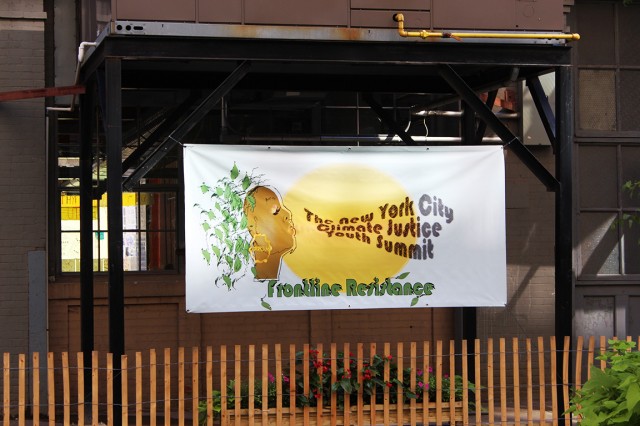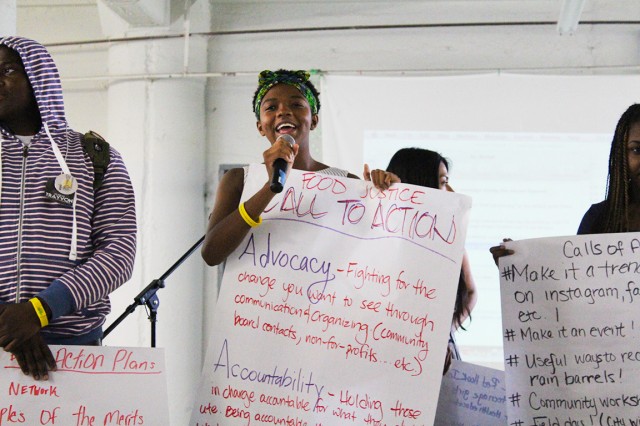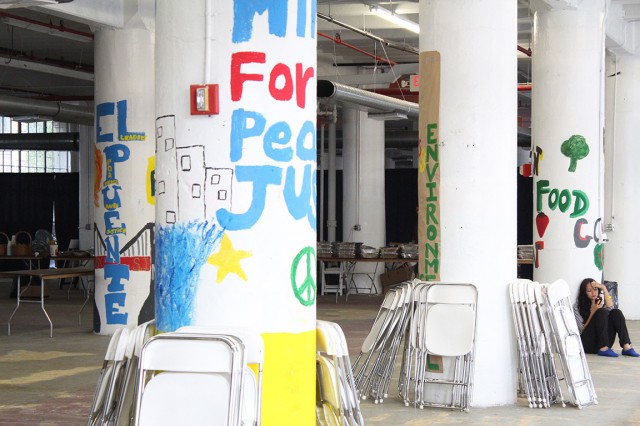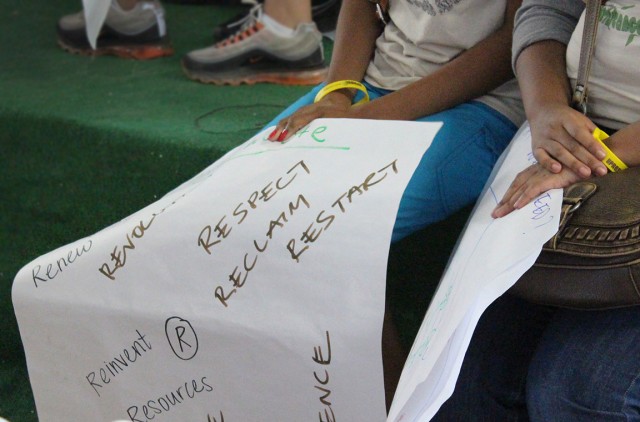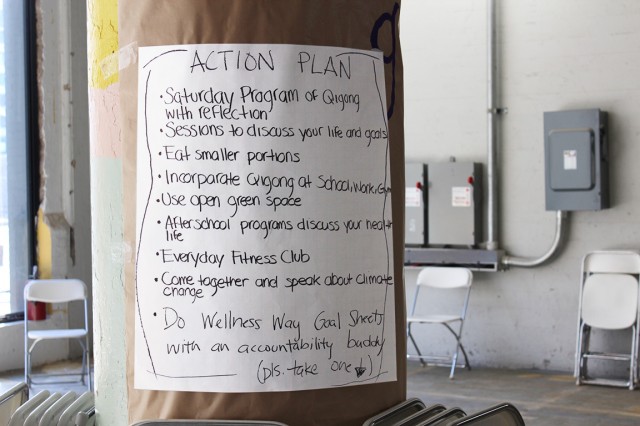This past weekend, New York City youth representing all five boroughs coalesced in Sunset Park for the 3rd NYC Climate Justice Youth Summit. The two-day event was packed with discussion and activities shaped to build community engagement in NYC youth for “Frontline Resistance” against the effects of climate change.
The two-day summit was hosted by UPROSE, the United Puerto Rican Organization of Sunset Park, in conjunction with fellow climate justice and community development nonprofits El Puente, the New York City Environmental Justice Alliance, The Point, YMPJ, and Nos Quedamos. In total, six hundred New York City youths, with ages ranging from 14 to 24, registered to attend.
On Friday, Congresswoman Nydia Velasquez and Councilwoman Melissa Mark Viverito of Harlem spoke to summit participants in a call to action. The summit closed on Saturday with “The Justice Concert,” featuring performances by spoken word poets and local hip hop groups.
Led by youth activists who belong to these organizations, groups of about 20-30 participants discussed food justice, resilience, and waste among other topics, and developed action plans tailored to the needs of their particular communities. Above all, the summit unified youth around the city as a leadership front against climate change.
“The purpose of this event is to bring together organizations in the five boroughs who are also working for environmental justice and climate change—for their youths to come here and see that there are other youth are involved in this” says Rose Martinez, an UPROSE representative who helped plan the event.
Environmental justice is particularly important to summit participants: many, along with the host organizations, represent the city’s communities of color, which were hardest hit in the wake of Hurricane Sandy and are often under-resourced and ill-equipped to combat the destructive impacts of climate change.
Weather phenomena in the last few years, namely Sandy, have shown that the extent of damage in the wake of major storms is largely determined by the preexisting vulnerabilities in a community, such as obsolete infrastructure, a community’s ability to organize, or a general lack of information on disaster preparedness and response. As it turns out, New York’s most vulnerable communities are most often low-income communities of color where “resilience” means much more than just rebuilding.
Environmental justice in New York, then, refers to a movement to eradicate the disadvantages of vulnerable communities and to ensure that all communities have an equal ability to bounce back.
“It was just a really cool thing to get different people from all five boroughs to come and talk about specifically Superstorm Sandy and how it affected them and what we could do to combat those effects,” says David Sosa, another UPROSE coordinating member who helped plan the second summit. “That’s really what it is–how can we be ready for the next climate change event or tragedy because climate change is here.”
If the summit demonstrates anything, it’s that youth in New York City are inspired and ready to inspire their communities.
“That was cool—the energy after having people come and talk to the youth and be like ‘You guys can do it, you guys are future council members and congressmen,’” says Sosa. “I guess that was the energetic response we were expecting. The fact that you can do it, so take leadership into your own hands.”
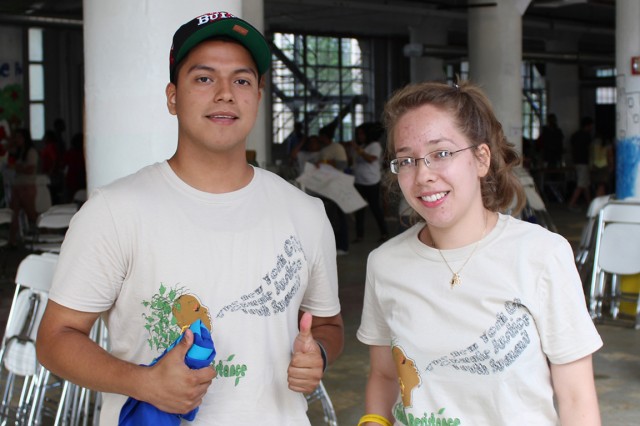
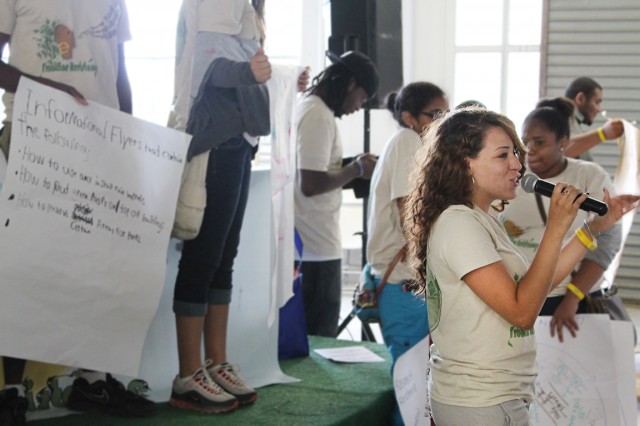
Photos by Kathy Zhang
